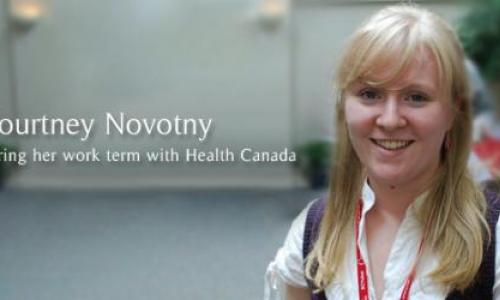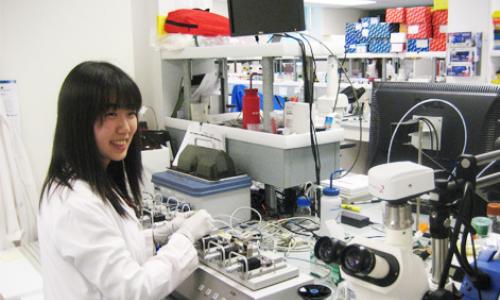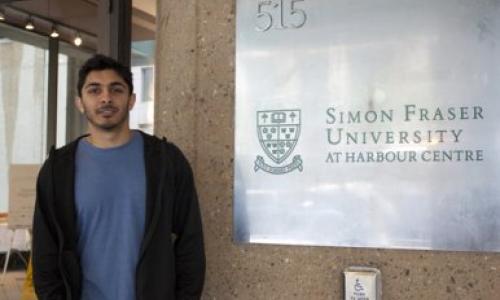
It wasn’t like an everyday training session; you know the ones where you feel as if you’ve heard it all before. No, this session was different. With years of experience as Career Advisor at Career Services under her belt, our leader, Brenda Badgero, taught us everything she knew to ensure we were prepared for the next stage of our career development: the dreaded interview. When all was said and done, I would leave armed with knowledge to combat any interview I encountered out there in the real world.
Today it was all about Preparation and as every good cadet knows, pre departure activities are the only place where mistakes can be corrected. Our commander walked us through six main tactics in interview preparation:
Tactic 1: Discovering Purpose
We all knew why we were at the training session and we started by learning about the other side of the battleground: the interviewer. I have never been an interviewer and I learned that their purpose is to discover if the interviewee can do the work (their abilities, experience and training), if they will do the work (characteristics, attitude, motivation and work ethic), and finally if they will fit in with the team (their values, beliefs and personal style).
The interview is considered to be a dialogue, a strategic conversation with a purpose. If a strategy was necessary to get through it, then a strategy we would learn. Next up, we had some reconnaissance research to conduct.
Tactic 2: Preparation
We needed to know where we were going, who we would come in contact with and what type of organization we were dealing with. Our first mission was to research the following about the organization:
-
History
-
Mission/Values
-
Products & Services
-
Clientele
-
More About the Position
-
Organizational Charts
-
Industry Information
We could find this information through:
-
Website
-
Internet (annual reports, articles and journals)
-
Site Visit
-
Employer Directories
-
Newspapers / Press Release
-
For Co-op jobs, through the OLC student profiles (link) and work reports
In addition to the all-important research about the organization, we also were asked to study our own body language such as the handshake and eye contact. Moreover, we learned that practicing deep breathing exercises and visualization helps to decrease nerves and anxiety. We were instructed to visualize in our minds the perfect interview, from the moment we walked into the organization to saying goodbye. We were to visualize answering each question fully, providing examples from our experiences all the while remaining calm and relaxed.
Tactic 3: Key Things to Know Before the Interview
Coordinates of the location, the time of the interview, name(s) of interviewer(s), the phone number of the organization, type and format of interview – such as a pre-screening, one-to-one or panel, and what to bring. After all, knowing what to expect decreases anxiety about the unknown and allows us to better able to deal with what is in front of us.
At this stage, I was feeling overwhelmed - how could I find all of these key things to know? Our leader simply suggested calling the organization or stopping by a few days before the interview, to see first hand the organization’s culture. Whew, disaster averted.
Tactic 4: Interview Questions
Before we were thrown into battle, our leader went over practice interview questions, paying close attention to questions with multiple parts. We were asked to respond to each part of the question, if necessary, asking that the question be repeated after we finished to ensure all parts had been answered.
Tricky questions such as “what is your main weakness?” were of concern to us all. Two strategies were given:
Pick a past weakness, one that has been corrected and describe how you solved it or changed it into a strength (ie. public speaking weakness, joined Toast Masters, registered for classes that involved oral presentations and attended ‘self-help’ workshops or reviewed DVDs.
Show the employer how you are working on that weakness, ex. If you have little knowledge in a computer program but are working on it by researching one-day courses to learn more about the program.
Employers may ask about our career direction and where we see ourselves in five years. We asked ourselves these questions first to discover if we fit in with the organization and where we were headed. The key to our survival in answering questions, our leader told us, was to remember that we are well rounded individuals; therefore, our stories should be as well. Use examples from school, work and volunteer experience when answering questions.
Finally, when the time would come to ask the interviewer questions, we were asked to pick three; one about the position, one about the company and one about the industry. After all, we would be interviewing the employer just as much as they are interviewing us.
Tactic 5: Gear
The appropriate gear for this occasion was straightforward: target our attire for the industry. For instance, Computing Science is typically a more casually attired industry, so a tie is not always necessary. It is usually best to dress one level above the ‘norm’, be well-groomed, avoid heavy fragrances, and accessorize sparingly. Done and done. My gear is stored, clean and ready for action.
Tactic 6: Pre-Arrival
First, we would map out our travel plan, remembering coins for parking – just in case. Second, turn off our cell phone, I repeat, turn off our cell phone. We would not only put it on vibrate as it can still be heard and is a sign of disrespect and a distraction. Third, a visit the washroom to practice calming techniques and wipe sweaty palms. Finally, and this is key, walk in alone. Whether we were driven by a friend or family member, it will be necessary to walk into the company alone. We adore our loved ones but we are willing to leave them behind during this mission.
I felt that step-by-step, along with the others, I had built confidence through our preparation. I was ready for the next battle; the actual interview.
Stay tuned for this cadet’s next stage of training; the in-interview process.
Beyond the Blog
-
Contact Career Services at career_services@sfu.ca to book a practice interview, or for one-on-one advising for interview preparation strategies.
-
www.eluta.ca is a Canada wide employer directory that lists employers that hire new graduates, along with job and company descriptions.














